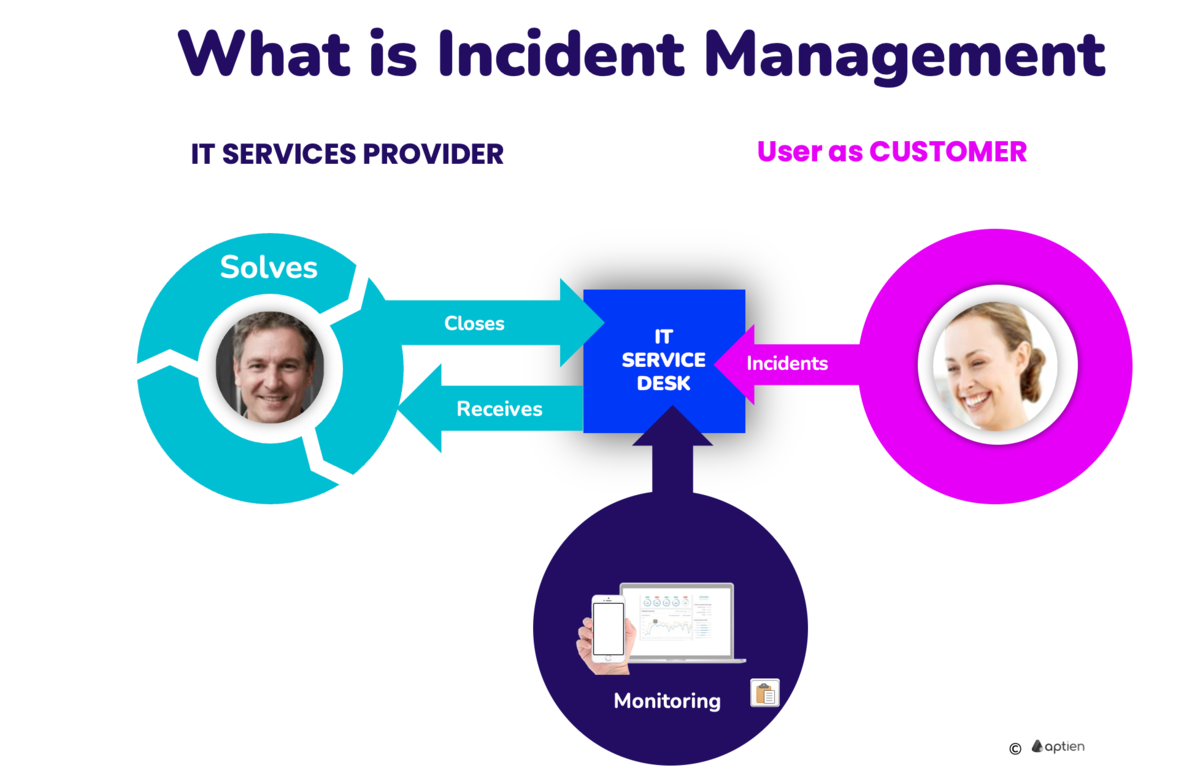Definition of Incident Management
Incident Management is one of the key areas of IT asset management and ITSM, and a core component of an IT service desk or helpdesk.
- Incident management mainly involves receiving and resolving various issues, incidents, and emergency situations reported by employees or through automatic reporting and monitoring systems.
- The goal of incident management is to resolve incidents with minimal disruption to the company’s operations and to prepare for similar future incidents.
What is an Incident?
- An incident is an unplanned event that causes disruption or a decrease in service quality.
- Typically, incidents are emergency situations.
- Incidents indicate a problem, a process interruption, loss of availability (of people or technology), confidentiality, or data loss.
- An incident requires a response to eliminate the consequence, and if possible, the root cause.
Examples of IT Incidents
- Non-functional WiFi
- A broken employee computer
- A cyber attack
- A printer that isn’t working
- A server outage
Basic Process of Incident Management
- Incident Reporting: An employee reports an incident, or it is detected by automatic monitoring.
- Incident Assignment: The incident is taken up by a resolver or escalated based on its severity.
- Resolution: The incident is addressed and resolved.
- Incident Closure: The incident is closed after resolution.
How to Manage Incidents?
- Easy Reporting: It’s important to have an easy way for employees to report incidents and for resolvers to be assigned quickly.
- Ticketing in IT Service Desk: Ticketing systems in the IT service desk help sort and assign tickets to the right resolver within the IT service team.
The essential functions of incident management include an IT service desk/helpdesk portal, notifications, escalation, automatic routing, workflow management, and SLA management.
